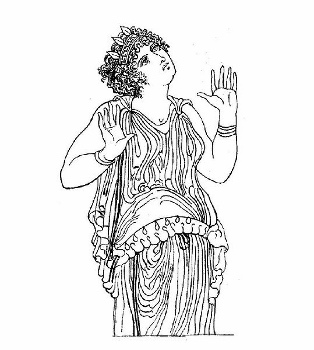4.30 Greek Goddess Gaia
Do you know who Gaia is? In this lesson, discover the Greek goddess Gaia and learn about her very famous children. Find out how Gaia is relevant to our lives today.
Goddess of the Earth
Perhaps you’ve heard of the Greek god Zeus, the god of the sky and ruler of Olympias. But do you know who his grandmother was?
Her name was Gaia (pronounced guy-ah). Gaia was the Greek Goddess of the Earth. Gaia is often called the mother of all gods because she had many children. In fact, Gaia is believed to have given birth to the first gods, called Titans, as well as humans.
Gaia is an important part of Greek mythology, which is a collection of stories about gods, goddesses, heroes, and customs of the ancient Greeks. Let’s find out more about Gaia.
Gaia, the Greek Goddess of the Earth

1. Main points:
The text introduces Gaia, the Greek Goddess of the Earth, known as the mother of gods and humans, and highlights her significance in Greek mythology.
2. Questions:
- Content Analysis: Who is Gaia and what is her role in Greek mythology?
- Contextual Analysis: How does Gaia’s role as the mother of gods and humans reflect the beliefs of ancient Greek culture?
- Linguistic Analysis: What does the text imply about the importance of Gaia in the pantheon of Greek gods?
3. Further Discussion:
- Why do you think ancient cultures like the Greeks created gods and goddesses to explain natural phenomena and human origins?
4. Answers:
- Content Analysis: "Gaia was the Greek Goddess of the Earth… Gaia is often called the mother of all gods because she had many children."
- Contextual Analysis: "Gaia is believed to have given birth to the first gods, called Titans, as well as humans."
- Linguistic Analysis: "Gaia is an important part of Greek mythology, which is a collection of stories about gods, goddesses, heroes, and customs of the ancient Greeks."
The Beginning of Time
Many Greeks believed that the very beginning of time started with Chaos, the only being that existed. From Chaos, the earth goddess Gaia was created, as well as the sky god called Ouranos (pronounced OO-ran-ohs). Ouranos is sometimes called Uranus, like the planet.
Gaia and Ouranos got together and had children, including Rhea (pronounced Ray-ah), another earth goddess, Cronos and Ocean.
But trouble was right around the corner. Ouranos was a terrible father. How would you feel if you were kept in a cave? This is what Ouranos did to his children. Gaia told her son, Cronos, to attack his father. He did, causing Ouranos to run away.
1. Main points:
The text describes the Greek mythological origins of the universe, starting with Chaos, and introduces Gaia, Ouranos, and their children, focusing on the conflict between Ouranos and his son Cronos.
2. Questions:
- Content Analysis: What is the mythological story of the creation of Gaia and Ouranos?
- Contextual Analysis: How does the story of Ouranos’ treatment of his children reflect the dynamics of Greek mythology?
- Linguistic Analysis: What does the text suggest about the character of Ouranos as a father?
3. Further Discussion:
- How do myths like these help us understand the values and beliefs of ancient cultures?
4. Answers:
- Content Analysis: "From Chaos, the earth goddess Gaia was created, as well as the sky god called Ouranos."
- Contextual Analysis: "Ouranos was a terrible father… This is what Ouranos did to his children."
- Linguistic Analysis: "Gaia told her son, Cronos, to attack his father. He did, causing Ouranos to run away."
Baby Zeus
Life didn’t get any easier for the gods and goddesses. Rhea and Cronos married each other, and had many children. But Cronos was also a terrible father. He actually ate his children!
In an attempt to save baby Zeus, Gaia and Rhea worked together to hide him away in a cave on the island of Crete. Rhea gave Cronos a stone wrapped up in clothes. Cronos ate the stone, and Zeus remained safe. Zeus grew up and defeated Cronos, saving his brothers and sisters – Hestia, Demeter, Hera, Hades and Poseidon. He became the king of the gods.
Sculpture of Zeus

1. Main points:
The text narrates the myth of how Rhea and Gaia saved Zeus from Cronos, who was known for eating his children, leading to Zeus’ eventual rise as the king of the gods.
2. Questions:
- Content Analysis: What did Rhea and Gaia do to protect Zeus from Cronos?
- Contextual Analysis: How does the story of Zeus’ survival and rise to power reflect the themes of Greek mythology?
- Linguistic Analysis: What does the text imply about the nature of Cronos as a father?
3. Further Discussion:
- Why do you think stories of gods and goddesses often involve such dramatic and extreme actions?
4. Answers:
- Content Analysis: "In an attempt to save baby Zeus, Gaia and Rhea worked together to hide him away in a cave on the island of Crete. Rhea gave Cronos a stone wrapped up in clothes. Cronos ate the stone, and Zeus remained safe."
- Contextual Analysis: "Zeus grew up and defeated Cronos, saving his brothers and sisters… He became the king of the gods."
- Linguistic Analysis: "Cronos was also a terrible father. He actually ate his children!"
Mother Nature
Greek mythology is still important today. The myths, or stories, told by the Greeks often taught lessons about right and wrong. Today Gaia is often referred to as Mother Earth, or Mother Nature.
In 1960, Dr. James Lovelock, a scientist who worked for NASA, created the Gaia Theory, which states that the Earth is a single living system in which all the parts must work together to balance each other to create life. Living in harmony with Mother Nature will keep our Earth healthy.
However, if we don’t treat her well, Gaia may try to balance out the humans’ mistakes herself, and it’s never wise to upset a Greek goddess. The theory is similar to what happens in the movie Moana: when the heart of the mother goddess, Te Fiti, is stolen, environmental catastrophes occurred.
Gaia is known as Mother Nature.

1. Main points:
The text explains the relevance of Greek mythology today, particularly the concept of Gaia as Mother Earth, and introduces the Gaia Theory by Dr. James Lovelock, which views Earth as a living system.
2. Questions:
- Content Analysis: What is the Gaia Theory and who proposed it?
- Contextual Analysis: How does the concept of Gaia as Mother Earth relate to modern environmental concerns?
- Linguistic Analysis: What does the text suggest about the consequences of not treating Earth well?
3. Further Discussion:
- How can understanding ancient myths like Gaia help us address current environmental issues?
4. Answers:
- Content Analysis: "In 1960, Dr. James Lovelock… created the Gaia Theory, which states that the Earth is a single living system in which all the parts must work together to balance each other to create life."
- Contextual Analysis: "Living in harmony with Mother Nature will keep our Earth healthy."
- Linguistic Analysis: "If we don’t treat her well, Gaia may try to balance out the humans’ mistakes herself, and it’s never wise to upset a Greek goddess."
Lesson Summary
Gaia is the Greek Goddess of the Earth, often referred to as Mother Nature. She is an important part of Greek mythology, which is a collection of stories that often teach lessons about right or wrong. Gaia is relevant today, particularly as we learn about the Gaia Theory, which explains how the Earth is a living system that works to stay in balance.
